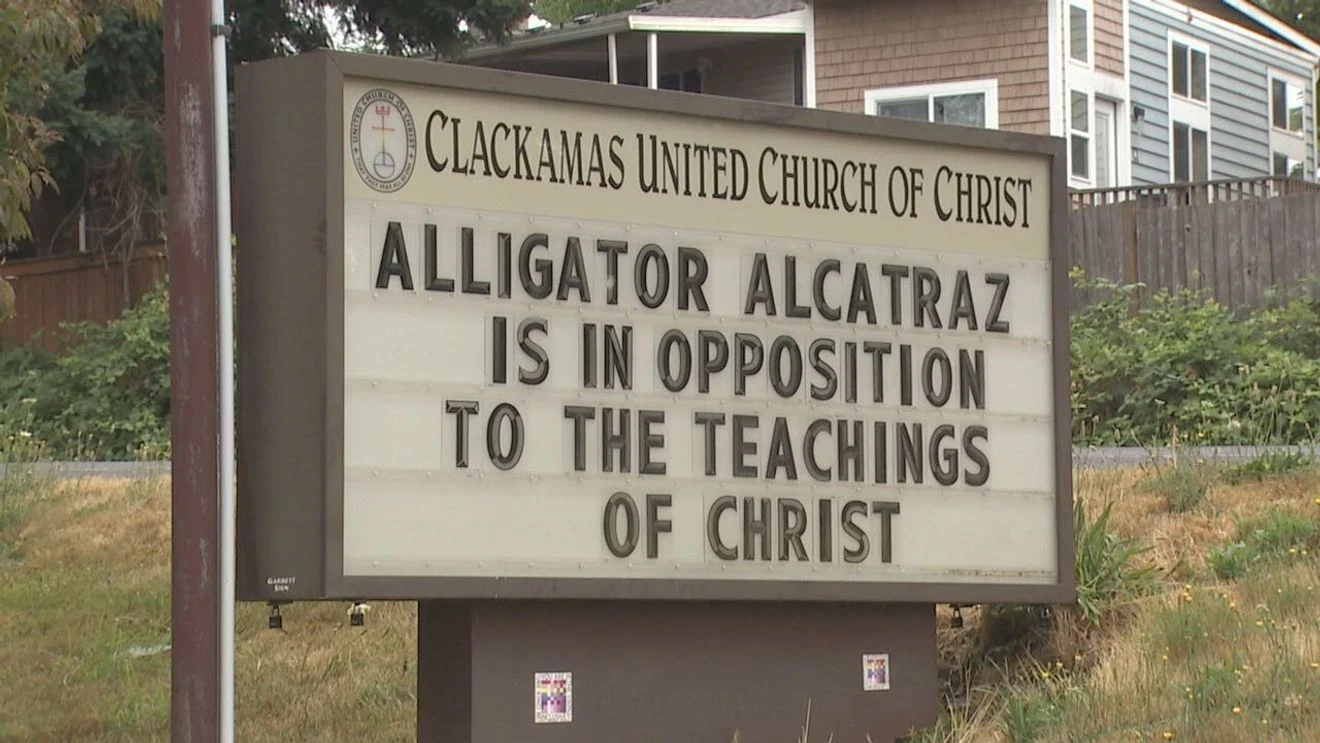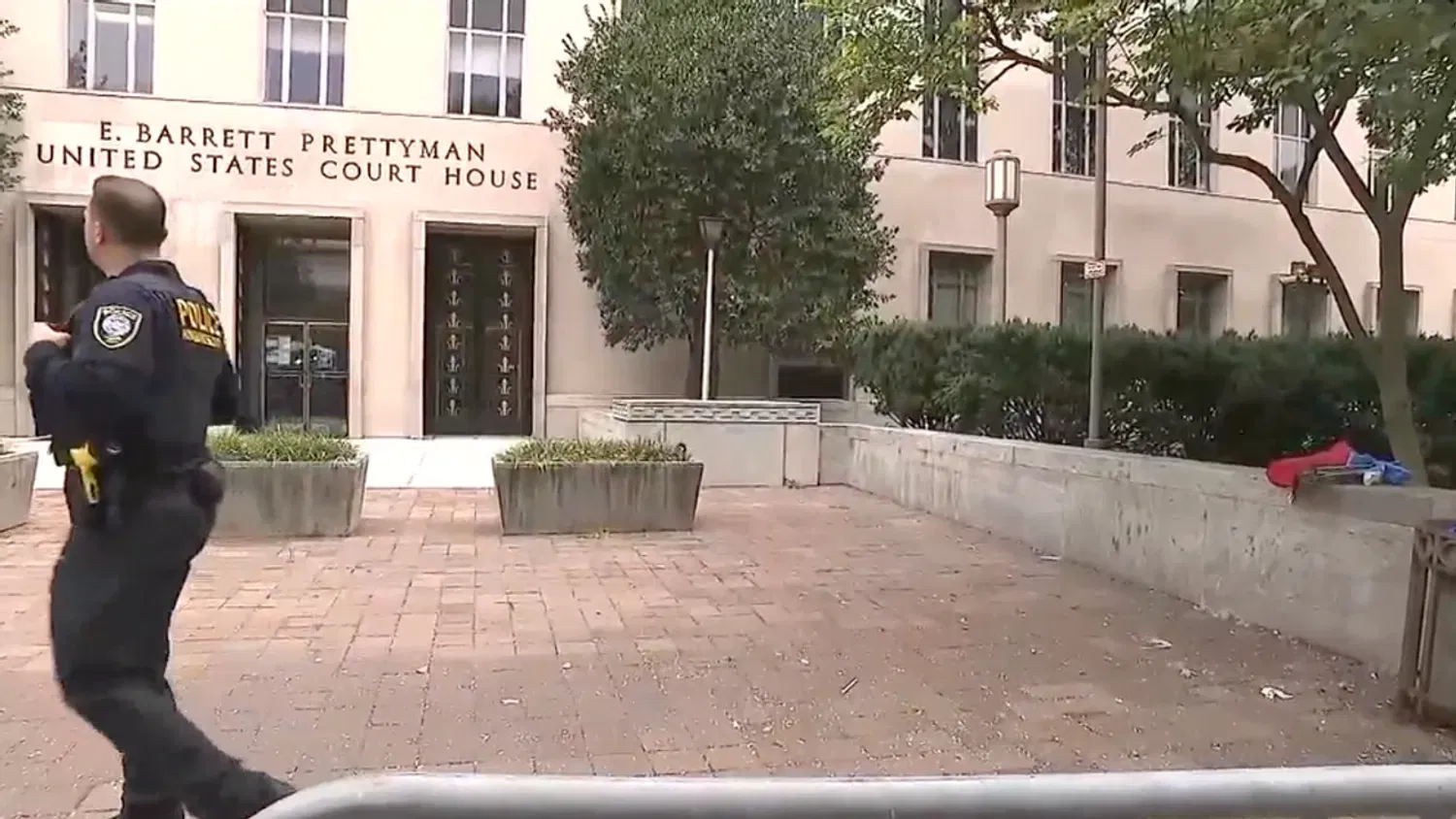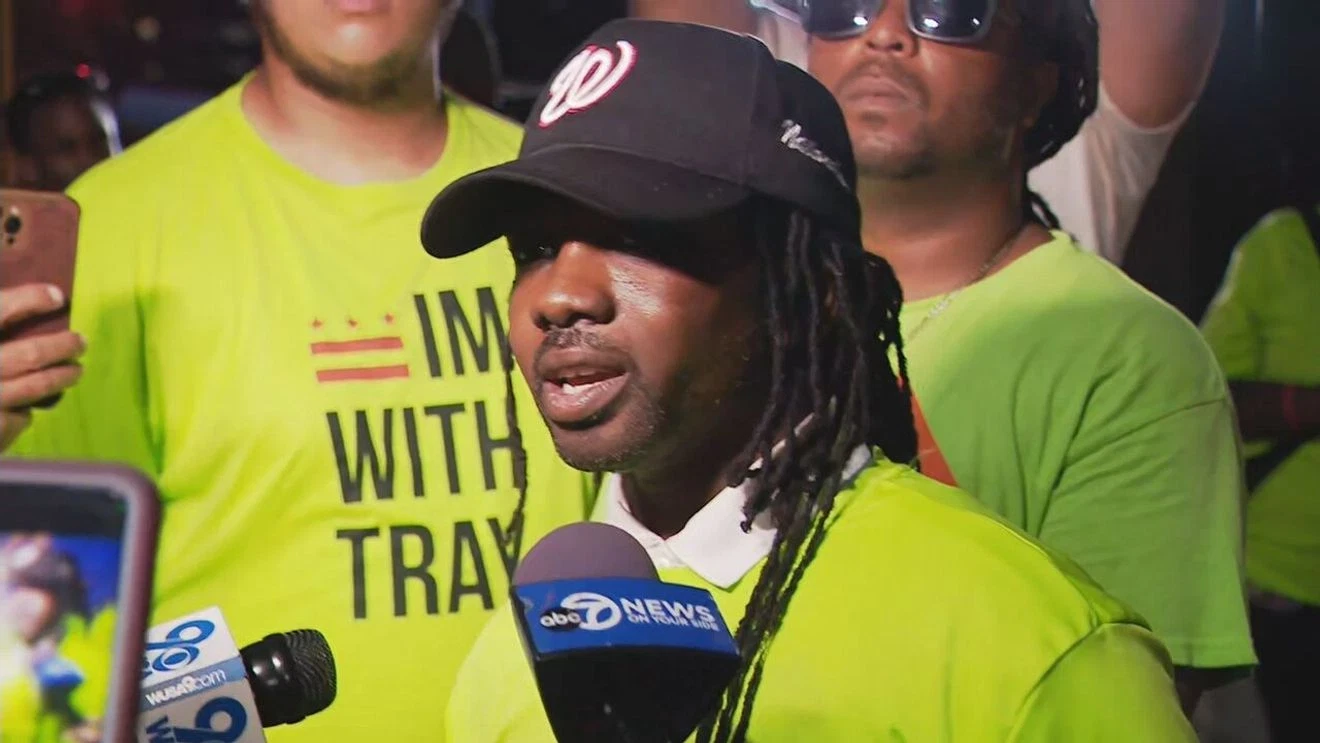MILWAUKIE, Ore. (KATU) — Reverend Adam Ericksen of Clackamas United Church of Christ is making waves in the Milwaukie community and beyond with a bold message displayed outside his church. The sign takes aim at immigration detention practices in the United States, specifically referencing a controversial facility in Florida dubbed “Alligator Alcatraz” by the Trump administration.
“Alligator Alcatraz is in opposition to the teachings of Christ,” the church sign reads — a message that Ericksen says is rooted in the gospel’s call for compassion, justice, and radical love.
A Gospel-Driven Message
Pastor Ericksen explained that his church regularly uses its sign to post provocative, thought-provoking messages, aligning with what he believes is the inherently challenging nature of the gospel.
“We put up provocative messages because I think the gospel is provocative,” Ericksen said.
“The gospel tells us to love our neighbor, who includes even our enemies, as we love ourselves.”
For Ericksen, this includes undocumented immigrants—many of whom are detained in harsh conditions without due process, which he says violates both Christian ethics and the U.S. Constitution.
A Direct Critique of U.S. Immigration Detention
The pastor specifically condemned the Florida-based immigrant detention facility referred to as “Alligator Alcatraz,” noting that many of the detainees—including minors—have no violent criminal records. According to Ericksen, the facility represents a broader pattern of inhumane treatment and scapegoating of vulnerable populations.
“Going against due process is going against the United States Constitution,” he said.
“Ninety-two percent of those detained by ICE don’t have violent criminal records. That directly contradicts the idea that ICE is targeting only ‘the worst of the worst.’”
His claims are backed by data from the Cato Institute, which reported that as of June 14, ICE had booked 204,297 people into detention for the year — with 93% of those individuals never convicted of violent offenses.
A Message Rooted in Scripture
Ericksen draws inspiration from Matthew 25:31-46, where Jesus describes how nations will be judged based on how they treat “the least of these” — the hungry, the sick, the prisoner, and the stranger.
“Our undocumented siblings, our strangers in our midst. How we treat them is how we treat Christ,” Ericksen said.
“If the United States truly wanted to be a Christian nation, we’d be loving our neighbors — including our undocumented and queer neighbors — as we love ourselves.”
He views the church sign not just as a protest, but as an invitation for Christians to reflect on their role in issues of justice and to live out the teachings of Christ more fully.
Mixed Reactions from the Faith Community
Unsurprisingly, the message has sparked both support and criticism from within the Christian community. Some view Ericksen’s actions as courageous and in line with the social justice mission of Christianity, while others see it as too political or divisive.
Nevertheless, Ericksen remains unwavering in his approach.
“The end goal is to invite Christians to live up to our mandate,” he said.
“Christ emphasized two commandments: love your neighbor and love God. That’s what this sign is about.”
A Call for Compassionate Reform
Ericksen also criticized the lack of accountability placed on businesses that hire undocumented workers, arguing that the current system unfairly punishes individuals seeking a better life while ignoring the economic incentives that drive illegal hiring practices.
“The political climate is designed to scapegoat marginalized communities and spread fear,” he said.
“We need compassionate immigration reform that reflects our values—not just as Christians, but as a humane society.”
Love Over Law
In closing, Ericksen stressed that for Jesus, the law of love overrides all other laws. That, he believes, should be the guiding principle in how the nation approaches immigration policy and the treatment of those seeking refuge.
“The law of love is above any law that justifies cruelty or injustice,” he said.
“That’s the standard Jesus set — and that’s the standard we should live by.”
As debates over immigration continue to stir national controversy, one Oregon pastor is making it clear where he and his congregation stand — with the stranger, the neighbor, and the marginalized.














Leave a Reply